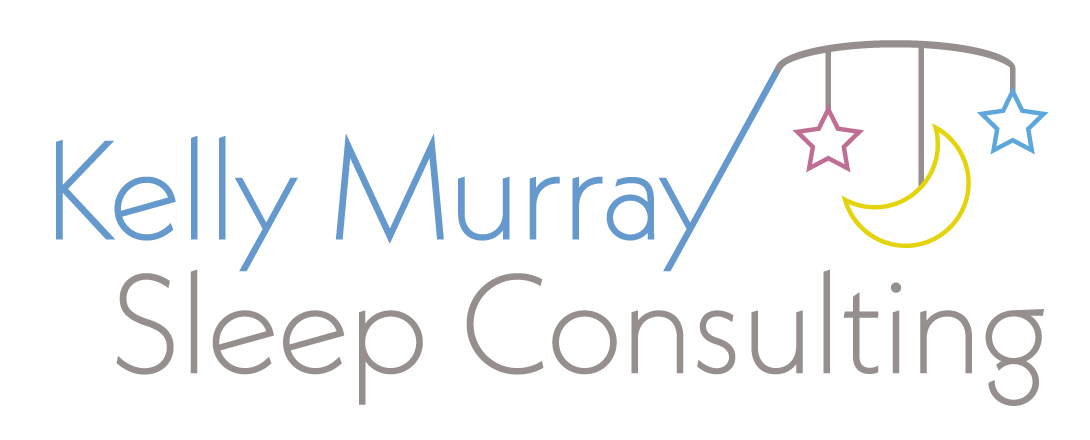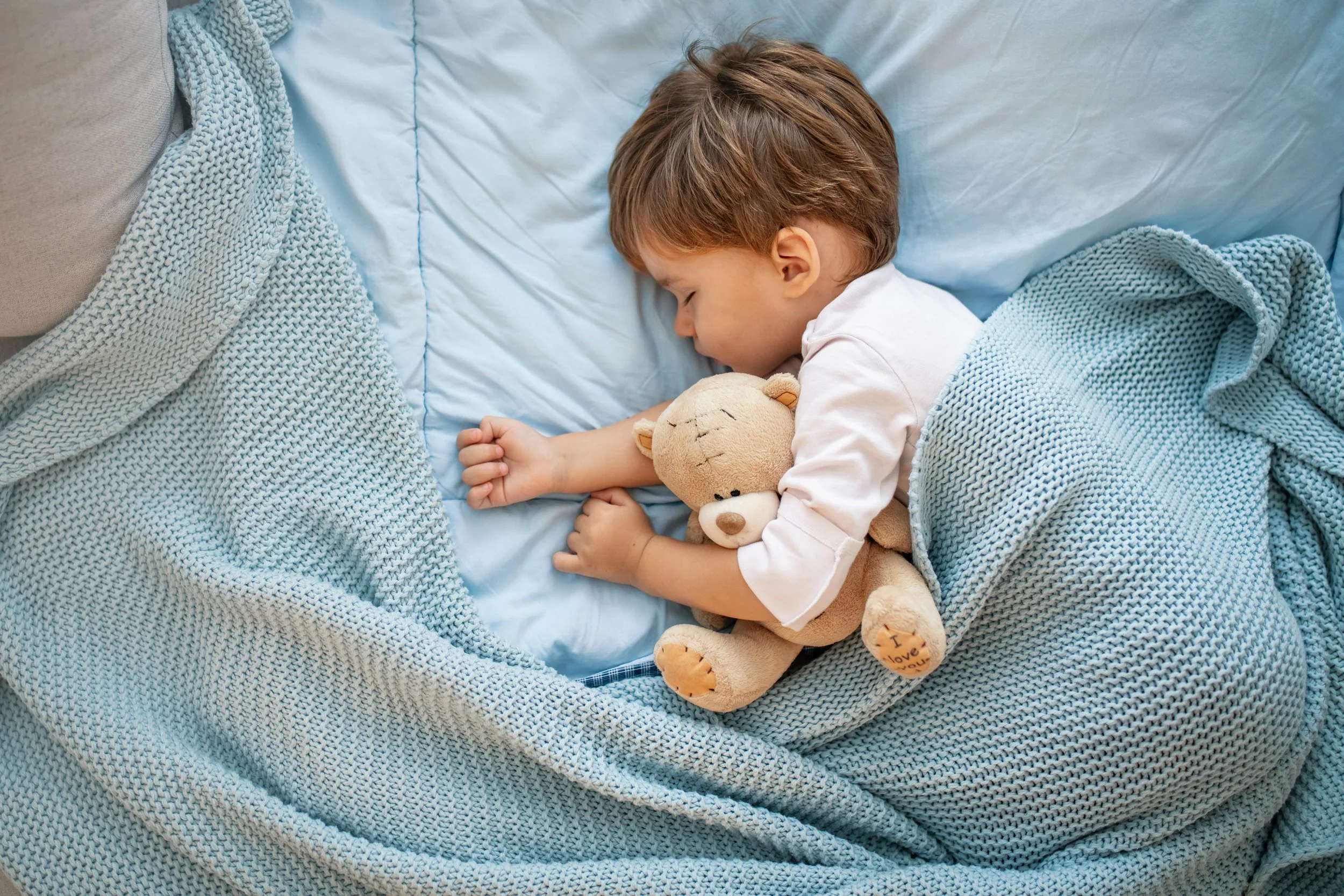I vividly recall the moment I gave birth to Sheridan, my first child. Like most mothers, I was overwhelmed by feelings of love, gratitude, and joy. And, just as quickly, I began to be buried in advice from so-called baby “experts - neighbors, friends, family members, etc..” The information was free-flowing from everyone everywhere. Even my Uber driver was weighing in!
It is a blessing and a curse to live in an age where information is limitless, especially with the internet. You can find millions of opinions on any parenting question in a nano-second (ever wonder how our mothers were able to parent without Google and Amazon Prime?). If only it were just as easy to determine which opinions are factual and which are just old-wives-tales.
If you google "Baby Sleep Advice," approximately 210,000,000 articles appear (yikes!). That certainly explains why so many mothers I talk to feel extremely confused on how to solve their children's sleep issues. I remember feeling the exact same way when my own son wasn't sleeping well, and I was looking for a solution. The advice I found while searching the internet was often just anecdotal and conflicting. My searches resulted in greater confusion and increased frustration.
Since you are reading this article, it would be safe to say that you can relate. To help ease your mind, I am going to put my training and experience to good use to squash some of the most popular sleep myths.
Myth #1 - "Too much daytime napping will keep the baby up at night."
This is mostly false, except in extreme cases. Unless your little one has day/night confusion or is napping for longer than 3 hours at a time, you shouldn't need to concern yourself with the length of his/her naps.
Babies wake up overnight due to overtiredness more than anything else. I'm sure you have heard someone say, "Don't let your baby sleep too much during the day." So, that leaves you thinking that an exhausted baby is more likely to sleep for a full night than one who napped well during the day, but it's actually the opposite.
An "overtired" baby has surpassed the "tired" phase, so his body produces stimulating hormones to fight fatigue. These hormones make it challenging for him to fall and stay asleep. It is like he drank a Venti Starbucks right before bed. A baby who has received a sufficient amount of daytime sleep is far less likely to miss the tired window and become overstimulated.
The amount of daytime sleep varies per age, but it is highly unusual for a baby to get too much sleep during the day. If you are wondering if your baby is getting too much or too little sleep, below are the guidelines I find to be helpful:
Under 3 months = 5 to 7 hours
4 to 8 months = 3 to 4 hours
9 to 24 months = 2 to 3 hours
Myth #2 - "Sleeping is a natural development and can't be taught."
Sleeping is absolutely natural. You can't teach a baby to be asleep. However, the ability to fall asleep and stay asleep independently can be taught.
Babies who are "bad sleepers" or prone to excessive night wakings have usually learned to depend on something external to fall asleep. I call these sleep props. Some of the most common sleep props include pacifiers and rocking or nursing asleep.
Although sleep props can be useful in helping babies to fall asleep, they can become problematic overnight. That is because babies (and adults) wake up multiple times throughout the night when connecting sleep cycles. Children who are dependent on a sleep prop will need their sleep prop to help them to fall back to sleep during these wake-ups. If the sleep prop is not readily available, they will panic, wake up completely, and then need a parent to assist them in falling back to sleep.
If you find your little one waking up excessively overnight, it is best to teach your child to fall asleep independently without a prop. Once your baby figures out how to fall asleep unassisted, he will effortlessly start stringing sleep cycles together, and before you know it, sleeping through the night.
Myth #3 - "Babies will naturally dictate their own sleep schedule."
The idea that infant physiology is programmed to regulate a baby's schedule is just not true. Babies need extensive care and nurturing in their development, and their sleep cycles are no different.
Infant sleep cycles are unbelievably erratic if left unregulated. If they miss their natural sleep window by as little as a half an hour, their cortisol production increases, causing a spike in energy, and the situation quickly spirals out of control.
As much as I wish babies could just fall asleep when they're tired, it simply doesn't work that way. That's not to say that you, as a Rock Star Mom, shouldn't respond to their cues, but you shouldn't rely exclusively on them either.
Myth #4 - "Sleep training is stressful for the baby and can affect the parent-child attachment."
Absolutely false. And this isn't just me talking here. The American Academy of Pediatrics agrees. According to a 2016 study conducted by eight of their top researchers, behavioral intervention, (i.e., sleep training) "provide(s) significant sleep benefits above control, yet convey(s) no adverse stress responses or long-term effects on parent-child attachment or child emotions and behavior."
There is no grey area here. Remember, well-rested babies, and their families do everything better.
Myth #5 - "Babies are not "designed" to sleep through the night."
Trusting your children to dictate their sleep schedule, their eating habits, their behavior, or just about any other aspect of their upbringing, is unrealistic.
Is your toddler designed to eat three pounds of chocolate cookies? Surely not. Will he if you don't intervene? Without a doubt.
Most experts will agree that once your baby reaches 15 lbs. or by at the latest 8 months old, he doesn't need to eat overnight. However, if you let him, he will, and he may even decide to stay up all night long to make multiple trips to the milk buffet. Why would he take time out of his busy day to feed? Most four month old babies that I work with start sleeping through the night as soon as they learn to fall asleep without feeding.
If you feel that your baby is feeding too frequently overnight, I would recommend calling your pediatrician and ask if it is OK to drop night feeds. She will be able to give you guidance based on your baby's weight and development.
There are many more myths and misconceptions surrounding babies and their sleep habits, but, in my opinion, these are some of the most important to get right from the start.
Remember, social media and the internet provide an endless pool of opinions, unsupported facts, and unsubstantiated claims regardless of their accuracy. When searching for information, find peer-reviewed scientific studies on all things baby-related and trusted sources like the American Academy of Pediatrics, the National Institutes of Health, Britain's National Health Service, Canada's Hospital for Sick Children, the World Health Organization, and other national children's health organizations. These are excellent sources of information you can feel confident about using to answer questions about your baby's health.
And, if you see me out and about, come grab me, I am willing to talk about the benefits of sleep for days (but just don't keep me up past my bedtime)!
Kelly Murray is a certified Pediatric Sleep Consultant who resides in Chicago with her husband, two preschoolers, and a fur baby. A lover of coffee, wine, old-school hip-hop, and of course sleep! She specializes in helping sleep-deprived families worldwide obtain the restful sleep they so desperately need. Her approach is gentle, non-judgmental, and customized to fit the child's temperament and mom’s and dad's parenting style. Learn more by booking a free 15-Minute Sleep Evaluation here..




